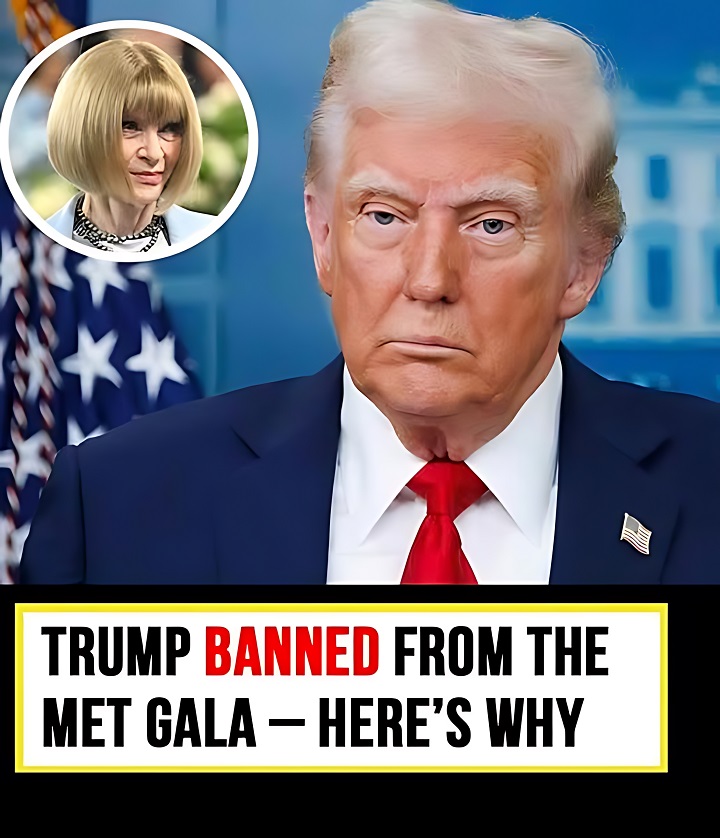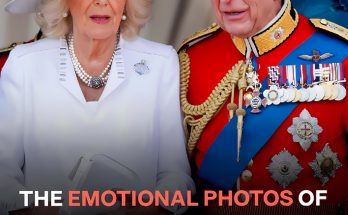Donald Trump once proposed to Melania on the way to the Met Gala. He was a familiar face on its red carpet throughout the 1980s and ’90s, attending with ex-wives Ivana Trump and Marla Maples. The Met Gala, held annually on the first Monday in
May, has long been known as fashion’s most exclusive night. Yet despite his fame, wealth, and history with the event, Trump was nowhere to be seen this year—and, by all accounts, hasn’t been welcome in quite some time.
The reason for his exclusion isn’t hidden in whispers or subtle snubs. It was made unmistakably clear by Anna Wintour, Vogue’s editor-in-chief and chair of the Met Gala since 1997. In 2017, during an appearance on The Late Late Show with James Corden,
Wintour was asked if there was anyone she would never invite back to the Gala. Her answer was blunt: “Donald Trump.” That decision, reportedly made shortly after the start of Trump’s first presidential term, has remained firm even now, during his second campaign for the presidency.

Trump’s banishment reflects a broader shift in the event’s values and cultural priorities. Though Wintour has insisted that the Met Gala is not a political affair—describing it instead as a celebration of beauty, creativity, and history—it’s clear that certain values now guide who is and isn’t welcomed. It’s not simply about fame or power anymore.
The guest list has become a curated expression of the cultural moment, and for better or worse, some figures no longer align with the image the Gala wishes to project.
In past years, Trump was part of the Met’s social fabric. He didn’t just attend; he made headlines there. His 2004 proposal to Melania, timed en route to the Gala, was splashed across tabloids. At the time, he was more of a celebrity real estate mogul and TV star than a political lightning rod.

But over the last decade, as the lines between celebrity and politics have blurred and hardened, the Met Gala has subtly redefined its boundaries. Trump, once a fixture, became a symbol of what the event no longer wanted to represent.
He’s not alone in this silent culling. This year, several of Trump’s notable allies were also missing from the red carpet. Elon Musk, a frequent guest in the past, was absent. So were Jeff Bezos and Mark Zuckerberg—figures who, despite their wealth and influence,
are now wrapped in a level of public scrutiny and controversy that seems incompatible with the Gala’s increasingly values-driven curation. According to The New York Times, their absence didn’t go unnoticed and may have been more intentional than coincidental.
This year’s theme, Superfine: Tailoring Black Style, was as politically resonant as it was artistically ambitious. It celebrated the ingenuity of Black designers and the way Black men and women have used fashion as a tool of cultural resistance and expression.
For many, the theme sent a powerful message about who the Gala is choosing to center and elevate. Cultural critic Louis Piscano noted that this wasn’t just a fashion statement—it was a declaration of intent, an embrace of representation and authenticity over status alone.

In this context, Trump’s absence seems not only deliberate but necessary to preserve the evolving identity of the Met Gala. It’s no longer simply a parade of glamor; it has become a cultural platform, and that platform has made its boundaries clear. While Trump may still command headlines,
his place among fashion’s elite appears to have been permanently revoked. What was once a star-studded tradition is now a closed chapter, symbolizing how the culture around celebrity, power, and influence continues to transform in an era that demands more than name recognition.
The Met Gala, after all, has always been about more than clothes—it’s about the stories those clothes tell, and increasingly, about the people who are allowed to tell them.



